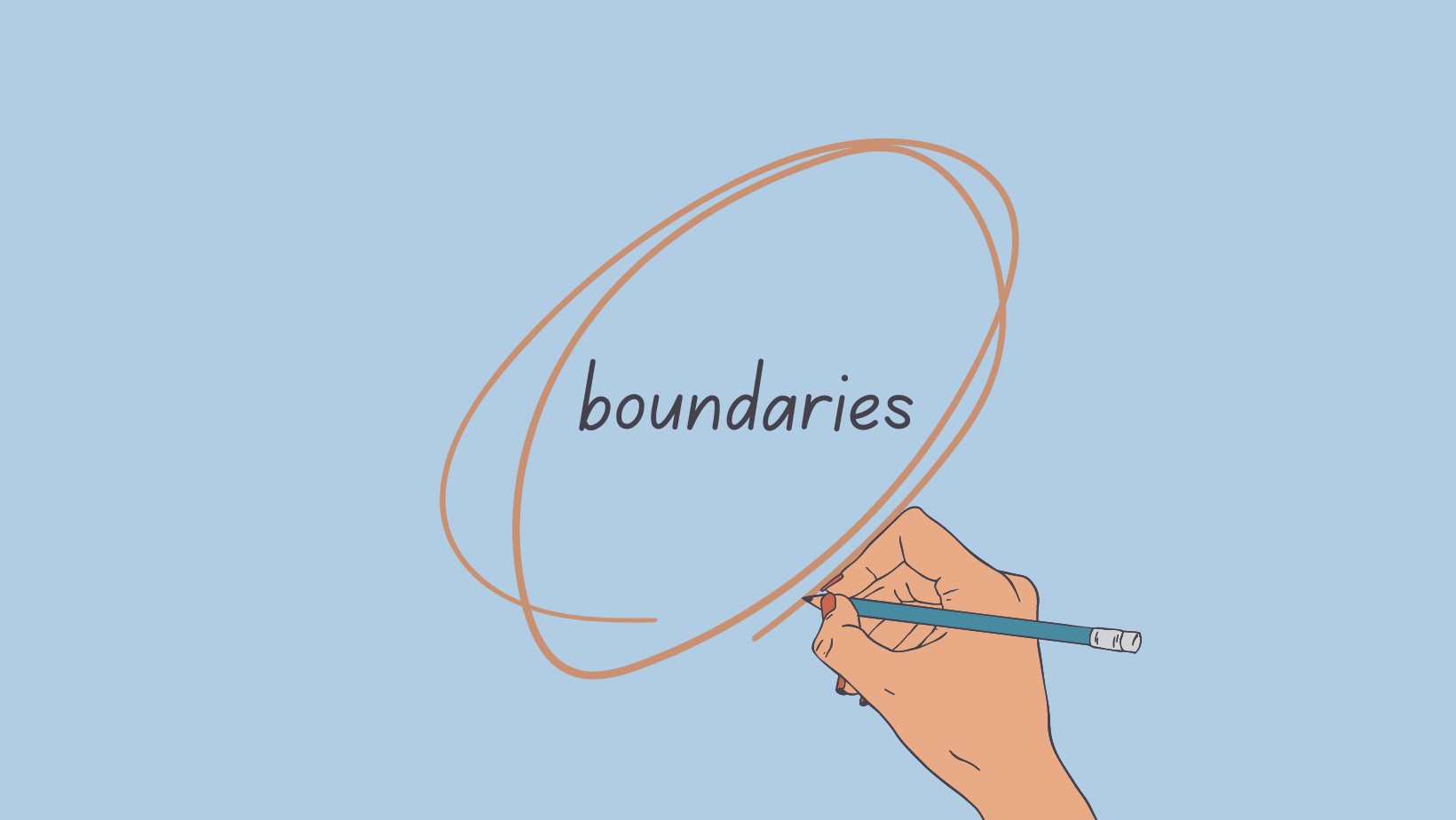This post was developed via a partnership with BetterHelp.
Does saying “yes” sometimes feel like a weight on your shoulders? Are you often left feeling drained, resentful, or just plain over it? The world seems to have an endless list of demands, doesn’t it?
Boundaries are often overlooked yet absolutely essential components of mental well-being. They are like protective fences around our energy, time, and emotional space. When boundaries are weak, we become vulnerable to burnout and uncomfortable feelings.
Picture a life where you confidently say “no” without guilt. Imagine feeling empowered to prioritize your own needs and emotional health while still maintaining your relationships. That level of peace is possible and starts with setting clear, compassionate boundaries.
This article will explore what boundaries are, why they matter so much, and how to start putting them into practice — for your well-being and the well-being of those you care about.
What Exactly Are Boundaries?

Don’t worry; boundaries aren’t about building walls to shut people out. Healthy boundaries define what you will and won’t tolerate. They’re your personal guidelines for how you want to be treated and how you’ll spend your most precious resources: time, energy, and emotional bandwidth.
Boundaries can be physical, intellectual, and emotional. Here are some different types of boundaries you may have:
- Physical boundaries: Your comfort level with touch, personal space, and how you use your body.
- Time boundaries: Protecting your hours for rest, self-care, and the things that bring you joy.
- Emotional boundaries: Deciding what topics are off-limits, how you navigate conflict, and when you need a breather from emotionally charged situations.
Boundaries are ever-evolving. As you grow and your needs change, it’s natural to adjust your boundaries accordingly. Your right to set and maintain boundaries is a personal choice, and you don’t need anyone’s permission to do so.
Why Boundaries Matter (A Lot!)

Without healthy boundaries, we become emotional sponges, soaking up everyone else’s problems, opinions, and demands. This cycle can lead to a dangerous depletion of our own well-being.
Boundaries offer numerous benefits, including:
- Enhanced self-respect: When you honor your limits, you signal to yourself (and others) that your needs are valid.
- Improved relationships Paradoxically, setting boundaries can actually bring you closer to others. Clarity and honesty foster trust and reduce resentment.
- Stress reduction: That constant overload melts away as you prioritize what truly matters.
- Greater autonomy: Boundaries reclaim your power of choice. You become the captain of your own ship.
You can simply say “no” without a whirlwind of explanations or justifications. When you practice setting boundaries, you may find that others begin to respect your time and needs more readily.
The Challenge of Setting Boundaries
We live in a society that doesn’t always honor the need for boundaries. We’re bombarded with messages glorifying self-sacrifice and relentless hustle. Saying “no” risks being labeled as selfish or difficult, especially for women and other marginalized groups.
If healthy boundaries weren’t modeled for us growing up, learning them takes conscious effort. And that’s perfectly okay. Think of it as building a new mental muscle. Don’t try to overhaul everything at once. That’s a recipe for overwhelm. Here’s a gentler, more sustainable approach:
- Tune in: Listen to the signals your body and emotions send. Tightness in your chest? Snapping at loved ones? These are signs your boundaries may need attention.
- Identify your values: What’s truly important to you? These values become your compass for setting boundaries aligned with what matters most.
- Baby steps: Start small. Choose a low-stakes situation to practice setting a limit. Maybe it’s declining an extra project at work or telling a chatty friend you need to end the conversation.
Communicating Your Boundaries

Here’s where things can get a little squirmy, but it gets easier with practice:
- Clarity is key: Be as specific as possible. Instead of “I need some space,” try, “I need an hour of undisturbed time to relax.”
- Firm but kind: You don’t need to be harsh or defensive. “That doesn’t work for me” is often enough to convey your message.
- Expect pushback (at least initially): Not everyone is used to respecting boundaries. Be prepared to gently restate your limits if needed.
- Don’t over-explain: Resist the urge to justify your needs. A simple “no” is powerful.
Types of Boundary-Breachers
Not all boundary violations are intentional. Some people simply struggle with awareness. Here are a few common types to watch out for:
- The pushy persuader: They won’t take “no” for an answer, wearing you down with a barrage of reasons why you should cave.
- The energy vampire: They emotionally drain you, leaving you feeling depleted and burdened by their problems.
- The chronic taker: They’re always asking for something but rarely reciprocate. Your generosity feels one-sided.
With some individuals, gentle reminders may suffice. Others may require firmer consequences or limiting your contact altogether. Honor your own well-being.
Boundaries with Yourself
Sometimes, we’re our own worst boundary violators. Internal boundaries are just as crucial:
- No more overbooking: Respect your need for rest and downtime. Your schedule shouldn’t be a never-ending to-do list.
- Quieting the inner critic: Challenge those harsh, self-limiting thoughts. Would you ever speak to a friend the way you sometimes speak to yourself?
- Saying “No” to perfectionism: Set realistic expectations. Done is better than perfect, especially when perfectionism leads to procrastination or burnout.
Understanding how to not let things bother you and practicing self-care are also important aspects of maintaining boundaries with yourself. Remember, boundaries aren’t about building walls. They’re about caring for yourself and creating a healthy balance in your relationships. With practice and patience, setting boundaries can become second nature, allowing you to live a more fulfilling and empowered life.
The Ever-Evolving Journey

Boundaries aren’t a one-and-done deal. As you grow, your needs shift. Regularly check in with yourself, tuning into potential areas where your boundaries could use strengthening or adjustment.
Don’t beat yourself up if you sometimes slip. Guilt is a boundary violator in disguise. Simply recommit to honoring your limits moving forward. Each time you say a firm “yes” or “no” in alignment with your needs, you build a stronger foundation of self-respect.
The Rewards of Boundaries
Protecting your emotional well-being isn’t selfish. It’s one of the kindest things you can do — for yourself and for those you love. Strong boundaries free up energy to show up as your best, most authentic self. You’ll have more to give, both to others and to the things that set your soul on fire. That’s true freedom.



